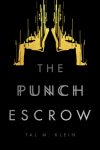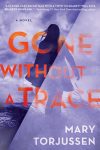

July 31st – August 6: “The book you would recommend?”
 This week we’re joined by ITW Members Billy Lyons, Mary Torjussen and Tal M. Klein to discuss the book they would recommend for those who are vacationing or staying at home – which is your one recommendation?
This week we’re joined by ITW Members Billy Lyons, Mary Torjussen and Tal M. Klein to discuss the book they would recommend for those who are vacationing or staying at home – which is your one recommendation?
~~~~~
 Billy Lyons became an avid reader and writer of horror fiction in early childhood. He is the author of two published short stories. “Cell 334” was published in the November 2014 edition of Another Realm Magazine. “Black-Eyed Children, Blue-Eyed Child” was published in High Strange Horror, a horror anthology published in 2015 by Muzzleland Press, where Billy is a contributing writer of book and magazine reviews. Blood and Needles is his debut novel.
Billy Lyons became an avid reader and writer of horror fiction in early childhood. He is the author of two published short stories. “Cell 334” was published in the November 2014 edition of Another Realm Magazine. “Black-Eyed Children, Blue-Eyed Child” was published in High Strange Horror, a horror anthology published in 2015 by Muzzleland Press, where Billy is a contributing writer of book and magazine reviews. Blood and Needles is his debut novel.
 Tal M. Klein was born in Israel, grew up in New York, and currently lives in Detroit with his wife and two daughters. When she was five years old, his daughter Iris wrote a book called I’m a Bunch of Dinosaurs that went on to become one of the most successful children’s book projects on Kickstarter – something that Tal explained to Iris by telling her, “your book made lots of kids happy.” Iris then asked Tal, “Daddy, why don’t you write a book that makes lots of grownups happy?” Tal mulled this over for a few years, and eventually wrote his first book, The Punch Escrow. It won the Inkshares Geek & Sundry Hard Science Fiction publishing contest, and will be the first book published on the Geek & Sundry imprint.
Tal M. Klein was born in Israel, grew up in New York, and currently lives in Detroit with his wife and two daughters. When she was five years old, his daughter Iris wrote a book called I’m a Bunch of Dinosaurs that went on to become one of the most successful children’s book projects on Kickstarter – something that Tal explained to Iris by telling her, “your book made lots of kids happy.” Iris then asked Tal, “Daddy, why don’t you write a book that makes lots of grownups happy?” Tal mulled this over for a few years, and eventually wrote his first book, The Punch Escrow. It won the Inkshares Geek & Sundry Hard Science Fiction publishing contest, and will be the first book published on the Geek & Sundry imprint.
 Mary Torjussen lives on the Wirral, across the River Mersey from Liverpool in England and Gone Without a Trace is set there. She worked for many years as a teacher and studied for an MA in Creative Writing at the same time. When she was offered voluntary redundancy she grabbed the chance to spend some time writing and gave herself a year to write a book that would be published. Within eighteen months she had sold rights to Headline in the UK, Berkley in the US, Random House in Germany as well as foreign language rights to France, Russia, Poland, Czech Republic and Slovakia. TV and film rights have been sold to Ecosse.
Mary Torjussen lives on the Wirral, across the River Mersey from Liverpool in England and Gone Without a Trace is set there. She worked for many years as a teacher and studied for an MA in Creative Writing at the same time. When she was offered voluntary redundancy she grabbed the chance to spend some time writing and gave herself a year to write a book that would be published. Within eighteen months she had sold rights to Headline in the UK, Berkley in the US, Random House in Germany as well as foreign language rights to France, Russia, Poland, Czech Republic and Slovakia. TV and film rights have been sold to Ecosse.
- LAST GIRL MISSING with K.L. Murphy - July 25, 2024
- CHILD OF DUST with Yigal Zur - July 25, 2024
- THE RAVENWOOD CONSPIRACY with Michael Siverling - July 19, 2024
